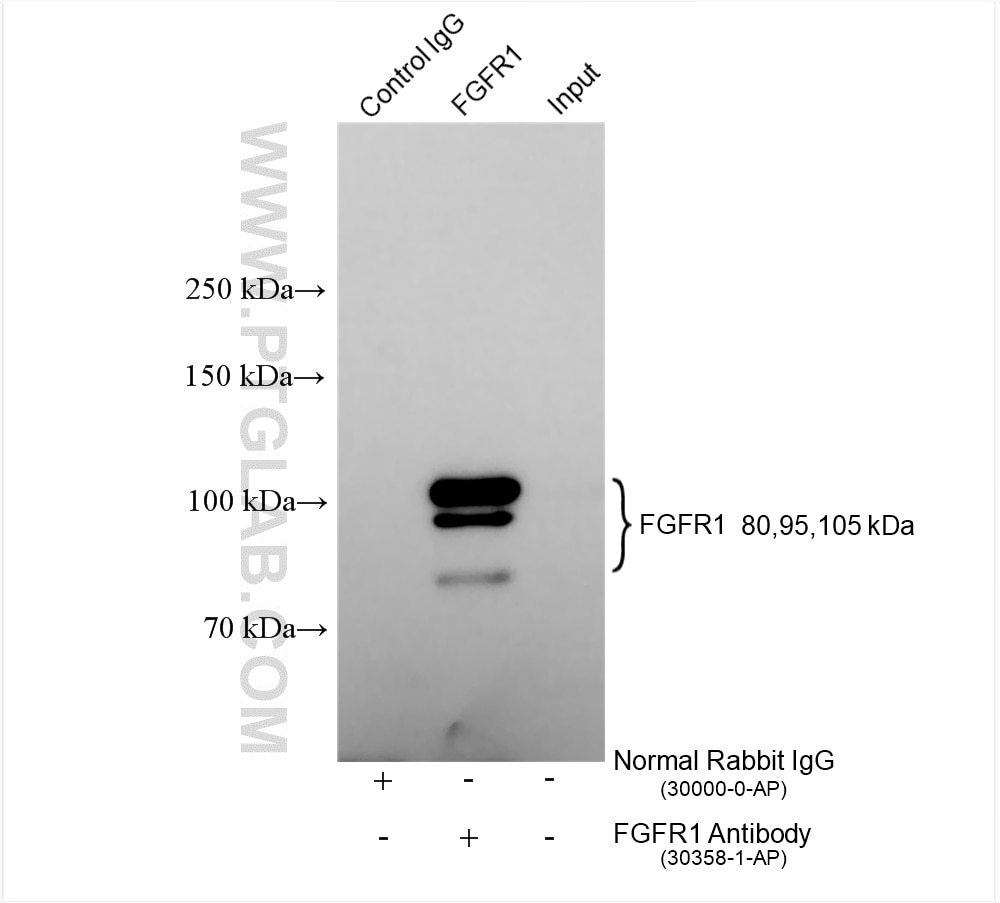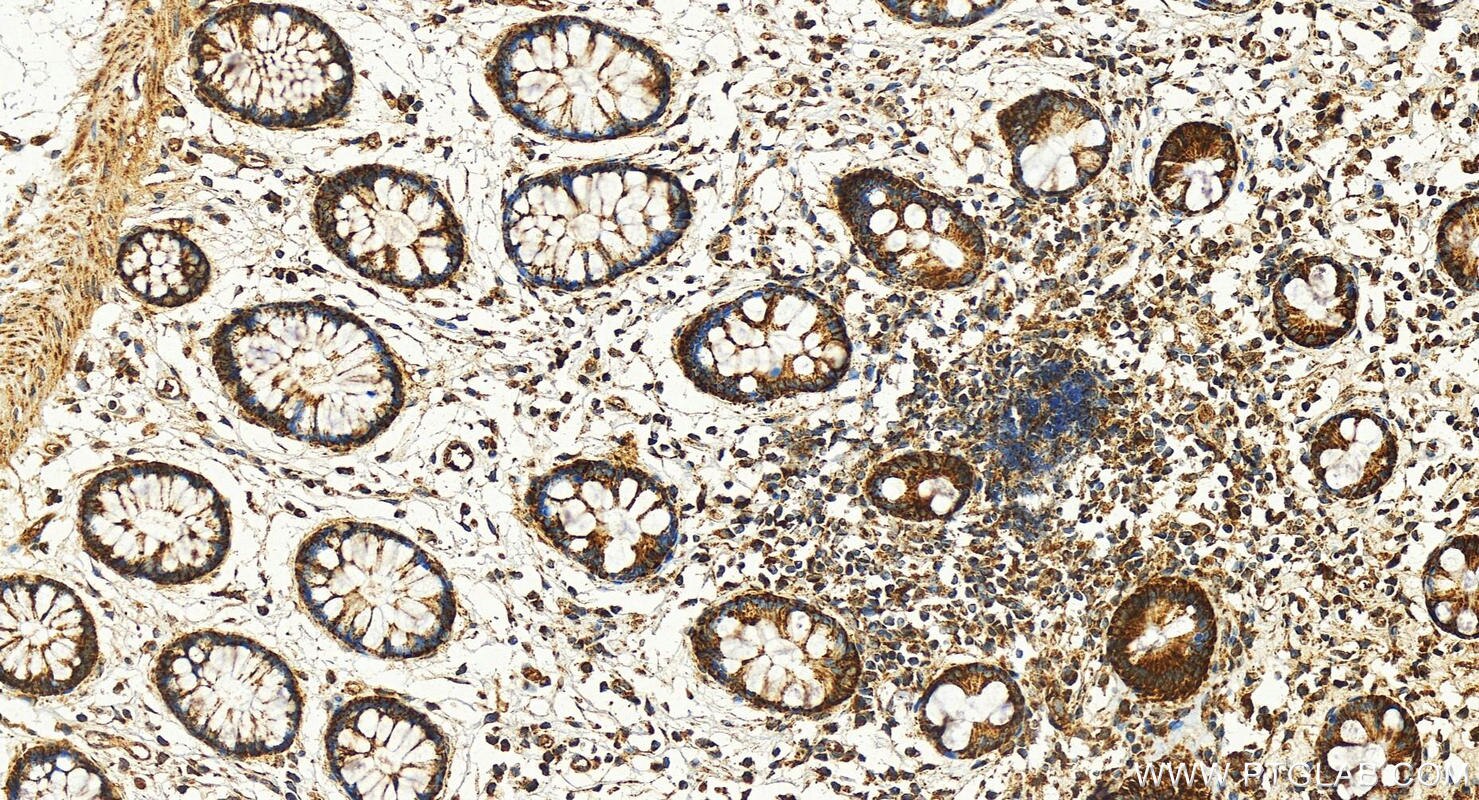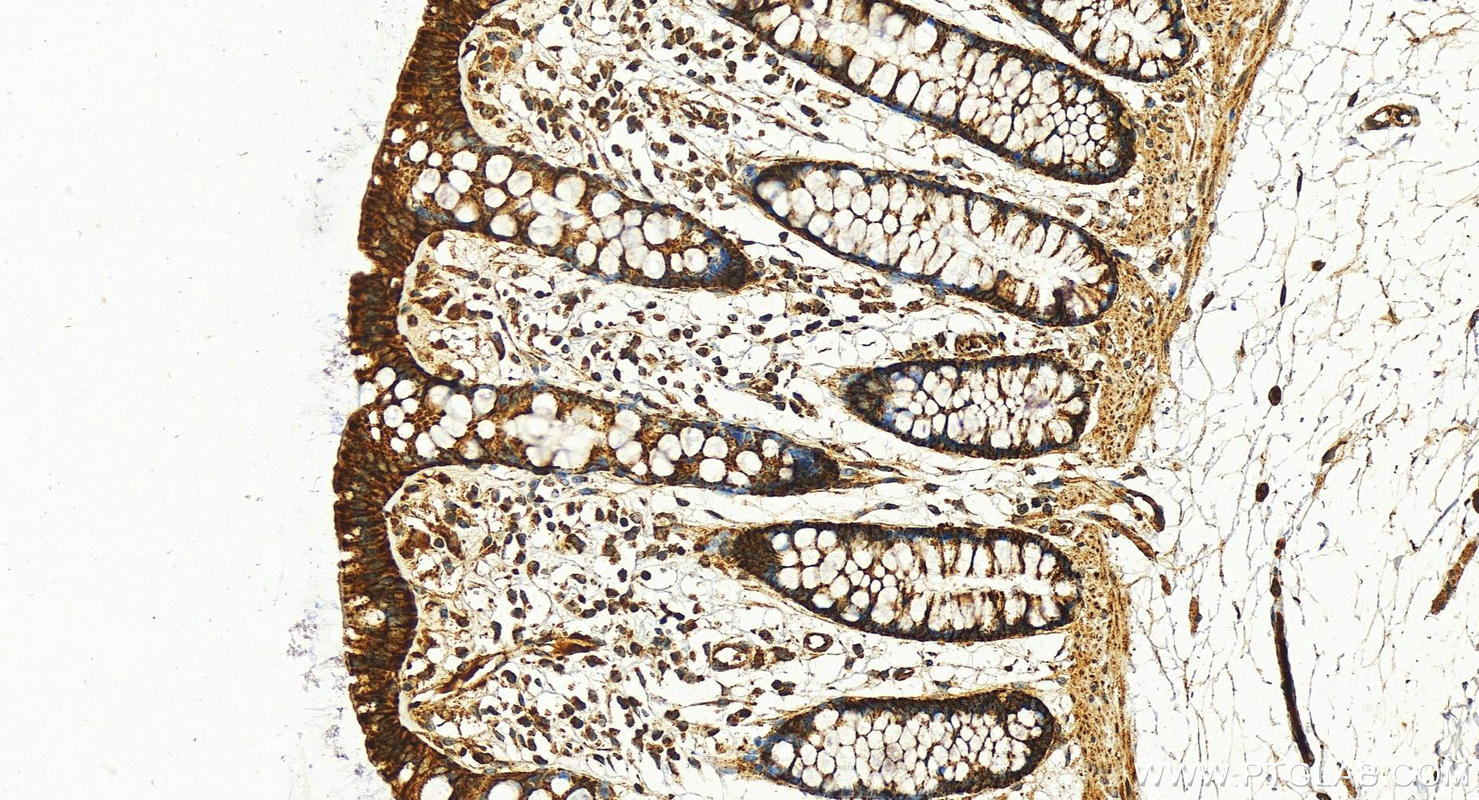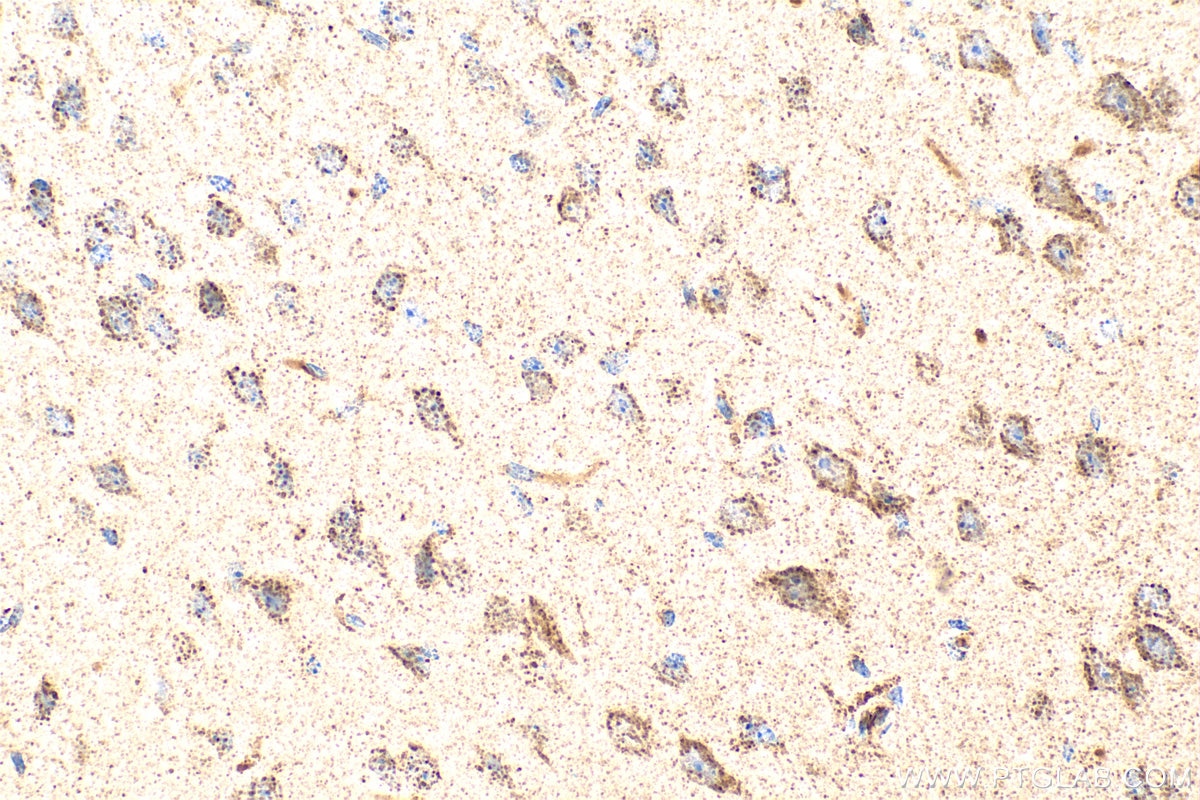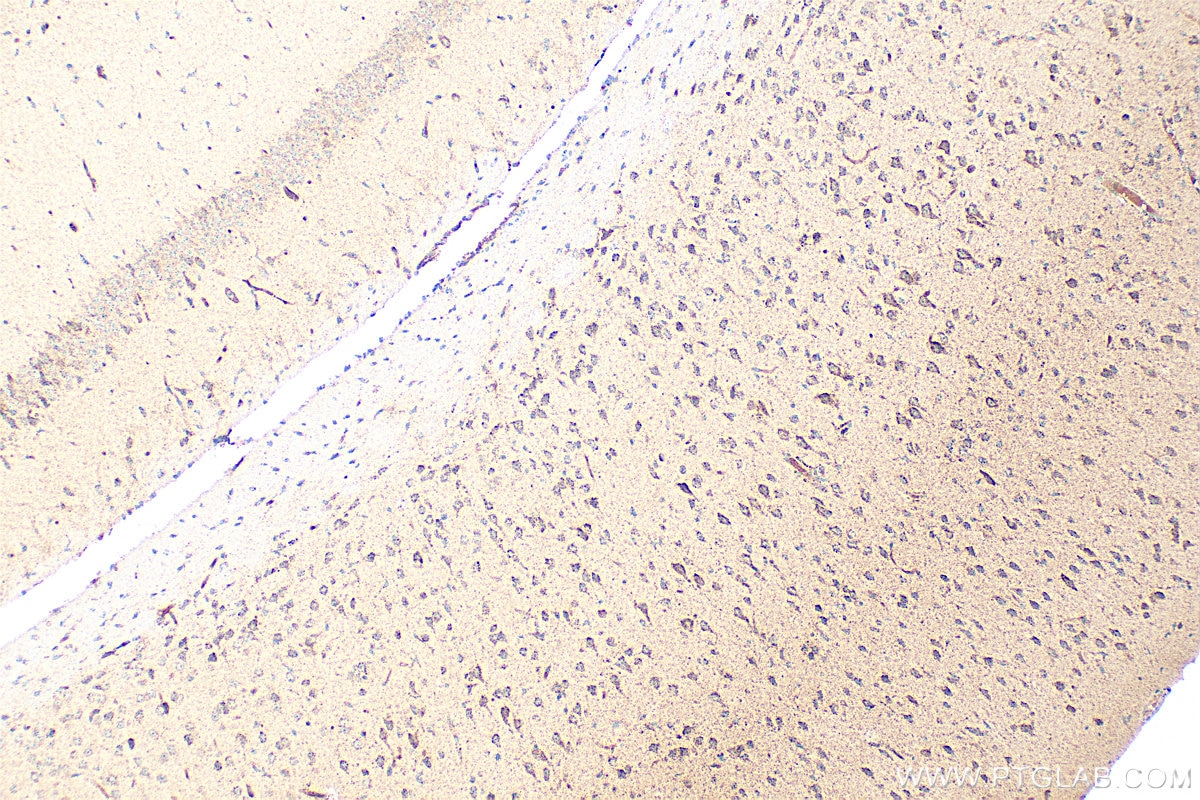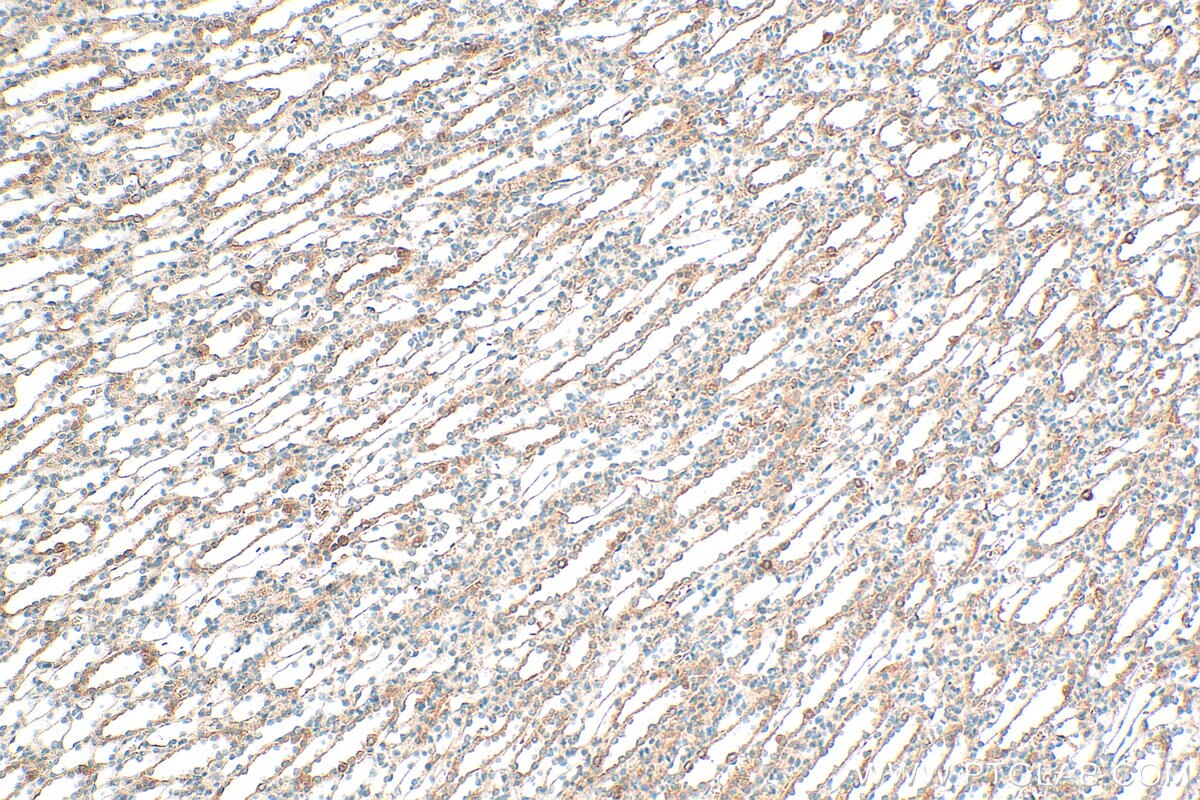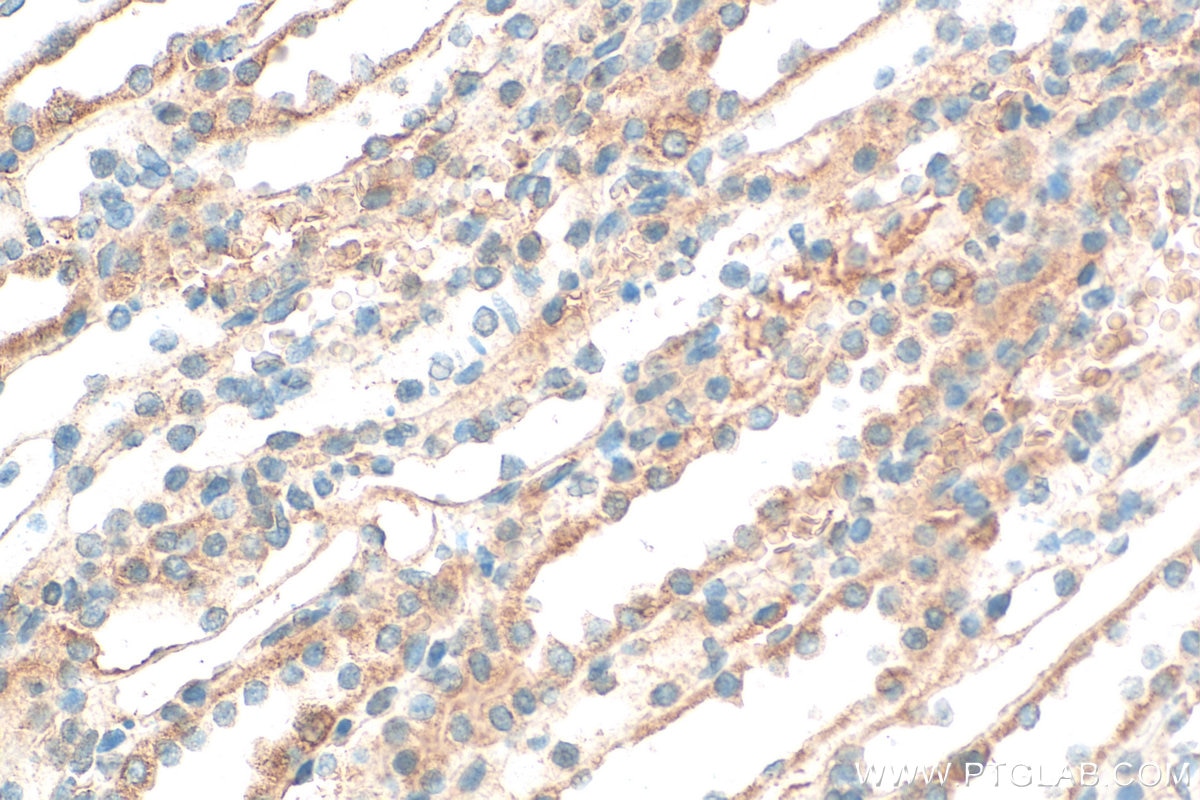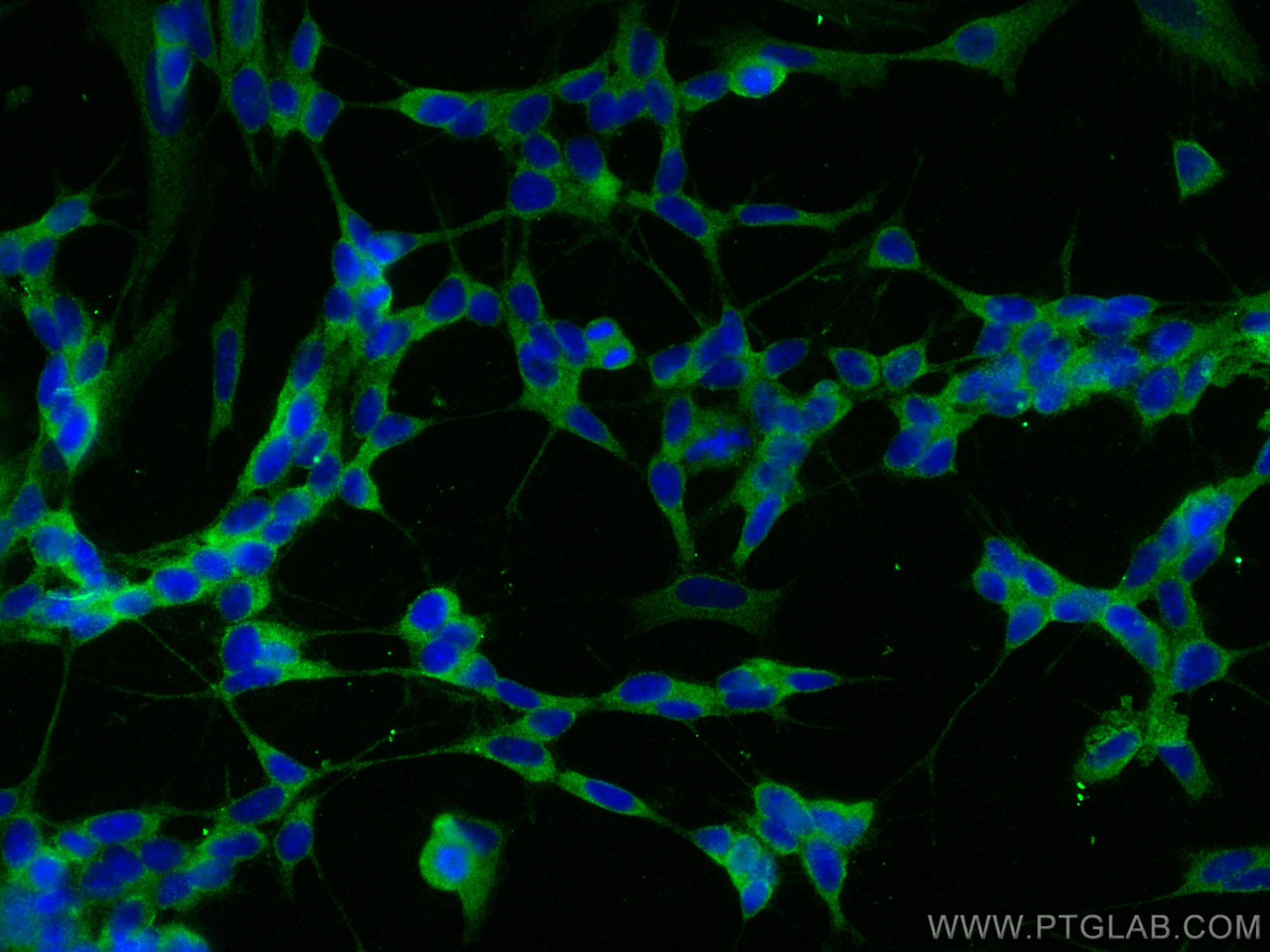Anticorps Polyclonal de lapin anti-FGFR1
FGFR1 Polyclonal Antibody for IHC, IF/ICC, IP, ELISA
Hôte / Isotype
Lapin / IgG
Réactivité testée
Humain, rat, souris
Applications
IHC, IF/ICC, IP, ELISA
Conjugaison
Non conjugué
N° de cat : 30358-1-AP
Synonymes
Galerie de données de validation
Applications testées
| Résultats positifs en IP | cellules SH-SY5Y, |
| Résultats positifs en IHC | tissu de côlon humain, tissu cérébral de souris, tissu rénal de rat il est suggéré de démasquer l'antigène avec un tampon de TE buffer pH 9.0; (*) À défaut, 'le démasquage de l'antigène peut être 'effectué avec un tampon citrate pH 6,0. |
| Résultats positifs en IF/ICC | cellules SH-SY5Y, |
Dilution recommandée
| Application | Dilution |
|---|---|
| Immunoprécipitation (IP) | IP : 0.5-4.0 ug for 1.0-3.0 mg of total protein lysate |
| Immunohistochimie (IHC) | IHC : 1:50-1:500 |
| Immunofluorescence (IF)/ICC | IF/ICC : 1:200-1:800 |
| It is recommended that this reagent should be titrated in each testing system to obtain optimal results. | |
| Sample-dependent, check data in validation data gallery | |
Informations sur le produit
30358-1-AP cible FGFR1 dans les applications de IHC, IF/ICC, IP, ELISA et montre une réactivité avec des échantillons Humain, rat, souris
| Réactivité | Humain, rat, souris |
| Hôte / Isotype | Lapin / IgG |
| Clonalité | Polyclonal |
| Type | Anticorps |
| Immunogène | Peptide |
| Nom complet | fibroblast growth factor receptor 1 |
| Masse moléculaire calculée | 820 aa, 91 kDa |
| Poids moléculaire observé | 80 kDa, 95 kDa, 105 kDa |
| Numéro d’acquisition GenBank | BC018128 |
| Symbole du gène | FGFR1 |
| Identification du gène (NCBI) | 2260 |
| Conjugaison | Non conjugué |
| Forme | Liquide |
| Méthode de purification | Purification par affinité contre l'antigène |
| Tampon de stockage | PBS with 0.02% sodium azide and 50% glycerol |
| Conditions de stockage | Stocker à -20°C. Stable pendant un an après l'expédition. L'aliquotage n'est pas nécessaire pour le stockage à -20oC Les 20ul contiennent 0,1% de BSA. |
Informations générales
Fibroblast growth factor receptor 1 (FGFR1) is a tyrosine-protein kinase that acts as a cell-surface receptor for fibroblast growth factors. FGFR1 has been implicated in diverse biological processes including embryonic development, cell proliferation, differentiation, migration, and tumorigenesis. Mutations in the FGFR1 gene have been associated with Pfeiffer syndrome, Jackson-Weiss syndrome, Antley-Bixler syndrome, osteoglophonic dysplasia, squamous cell lung cancer, and autosomal dominant Kallmann syndrome. Alternatively spliced variants that encode different protein isoforms have been described.
Protocole
| Product Specific Protocols | |
|---|---|
| IHC protocol for FGFR1 antibody 30358-1-AP | Download protocol |
| IF protocol for FGFR1 antibody 30358-1-AP | Download protocol |
| IP protocol for FGFR1 antibody 30358-1-AP | Download protocol |
| Standard Protocols | |
|---|---|
| Click here to view our Standard Protocols |
